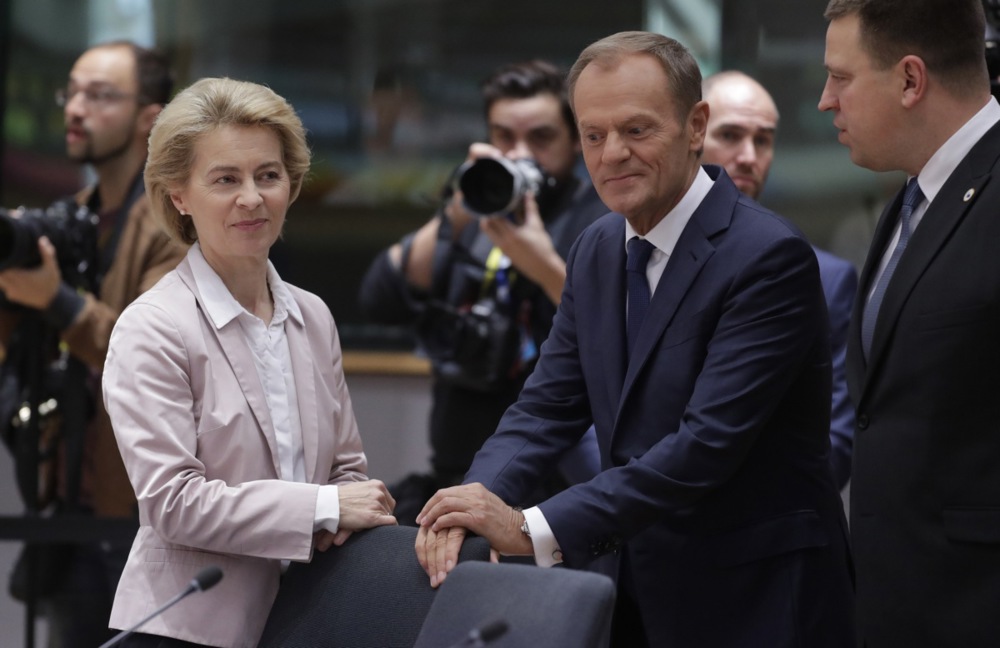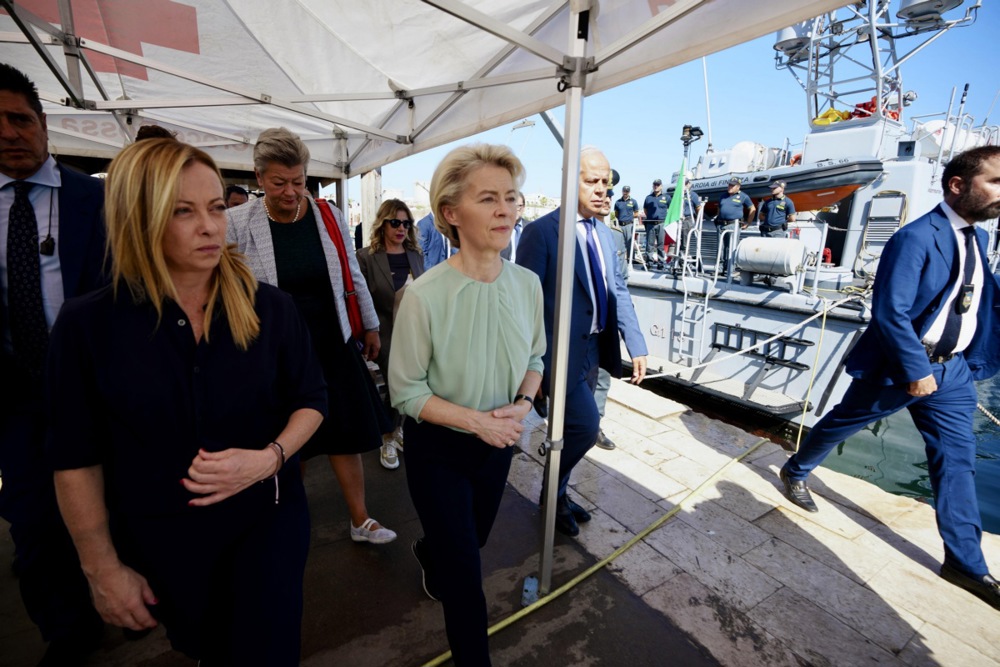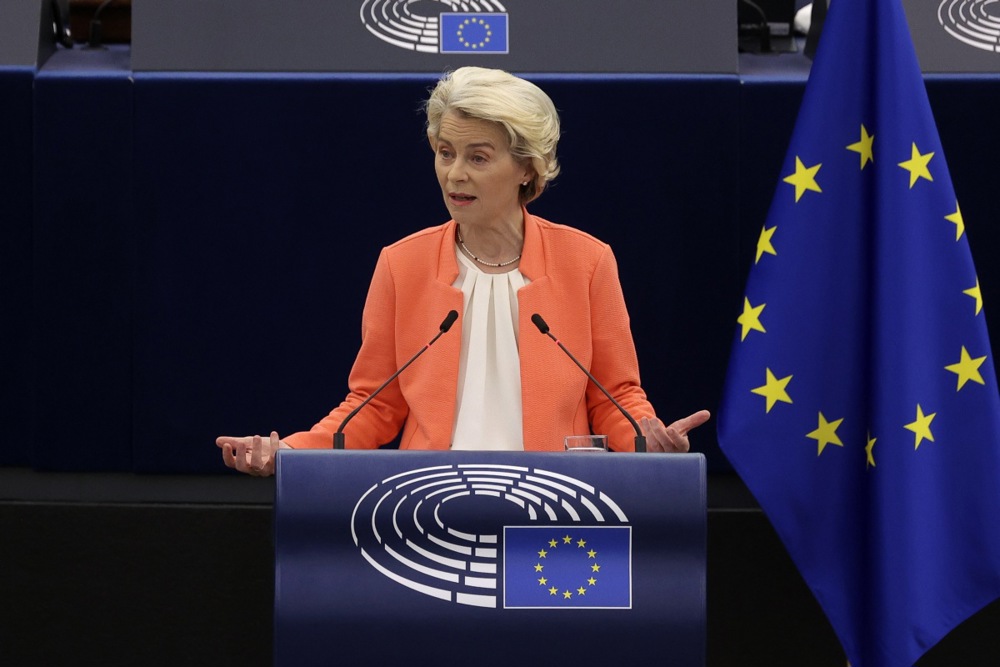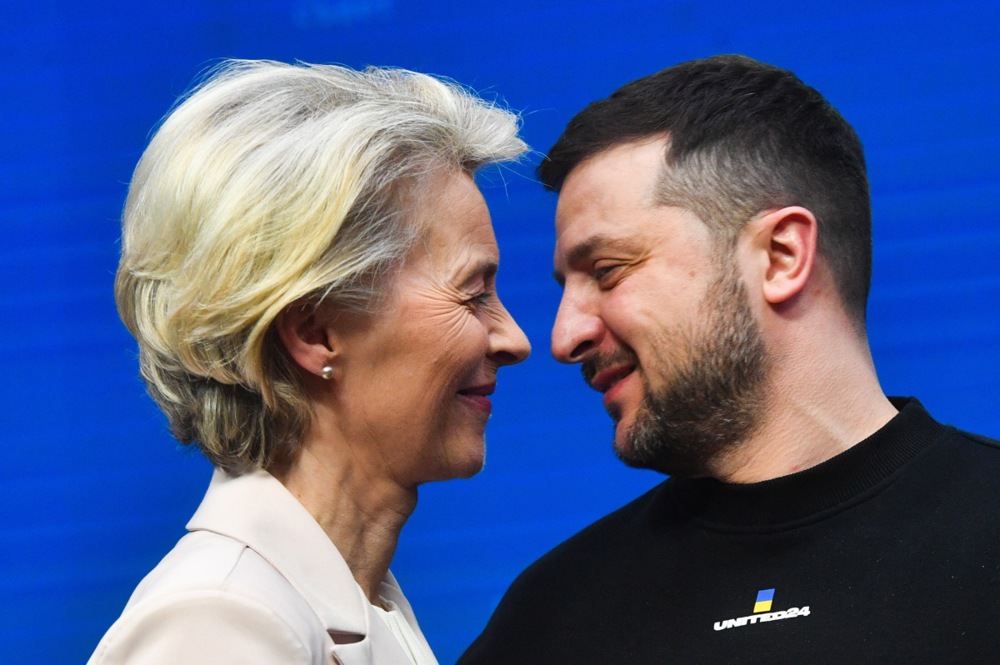Polish officials protested against the use of the phrase: “Auschwitz Camp, Poland” by the European Commission.
Their anger was over subtitles in a video recording posted on X by EC President Ursula von der Leyen made to commemorate the victims of the Holocaust on January 27.
A clip about the Holocaust described Auschwitz as being in Poland without any further mention as to who set up the concentration camp and for what reason.
The EC published on its website and social media the recording commemorating the International Holocaust Remembrance Day. In it, Commissioners including Von der Leyen recall the names of Holocaust victims from different parts of Europe, including those murdered in the Auschwitz-Birkenau death camp set up in 1940 by the occupying German Nazis.
The victims’ places of death are given, tagged with the name of the town and the country that location is currently in. Thus, the subtitles displayed in the recordings read: “Auschwitz Camp, Poland”, alongside others such as “Mauthausen Camp, Austria” and “Jasenovac Camp, Croatia”.
On January 28, Polish officials reacted on social media to what they saw as the misleading post: “Auschwitz Camp, Poland.”
Foreign minister Radoslaw Sikorski wrote on X: “When referring to the Nazi extermination camp in Auschwitz, it should be noted that it was established under German occupation.”
He added: “Information posted on the European Commission’s social media will be clarified but it is a shame that the Polish Commissioner [Janusz Wojciechowski] did not present the Polish point of view in advance.”
According to commercial radio RMF FM, Wojciechowski did not participate in the piece precisely because he objected to the way Auschwitz was portrayed.
Former Polish prime minister Mateusz Morawiecki claimed in his social media post: “The EC has turned the day of remembrance of the Holocaust into a ‘Day of manipulation and fake facts’ together with a ‘day of lies about occupied Poland’”.
Arkadiusz Mularczyk, former deputy foreign minister with the previous Conservative (PiS) government, wrote on X: “It is becoming obvious that the Polish Ministry of Foreign Affairs must continue its efforts to educate about World War II because on occasions such as the International Holocaust Remembrance Day, it is still visible that false narratives circulate around the world.
“To be clear: none of the concentration camps were Polish, all concentration camps were built in German-occupied territories, the Nazis were German and should be referred to as ‘German Nazis’. Auschwitz was established in German-occupied Poland,” he added.
The Auschwitz Museum in Poland also reacted online, stating Auschwitz was occupied by the Germans and in October 1939 was annexed directly into Germany, “therefore it is inaccurate to state that the camp was on the territory of occupied Poland”.
It added that the video material did not include the fact that Auschwitz was a part of the annexed territory and that describing it as a part of Poland may mislead readers into thinking Poland was somehow also responsible for the functioning of the German death camp.
This is not the first time Polish authorities have protested against the use of phrases such as “Polish death camps” in German and English-speaking media, some examples of which have led to litigation.
This time the matter has been settled amicably and the caption in the EC clip now states: “German Nazi death camp Auschwitz”.





